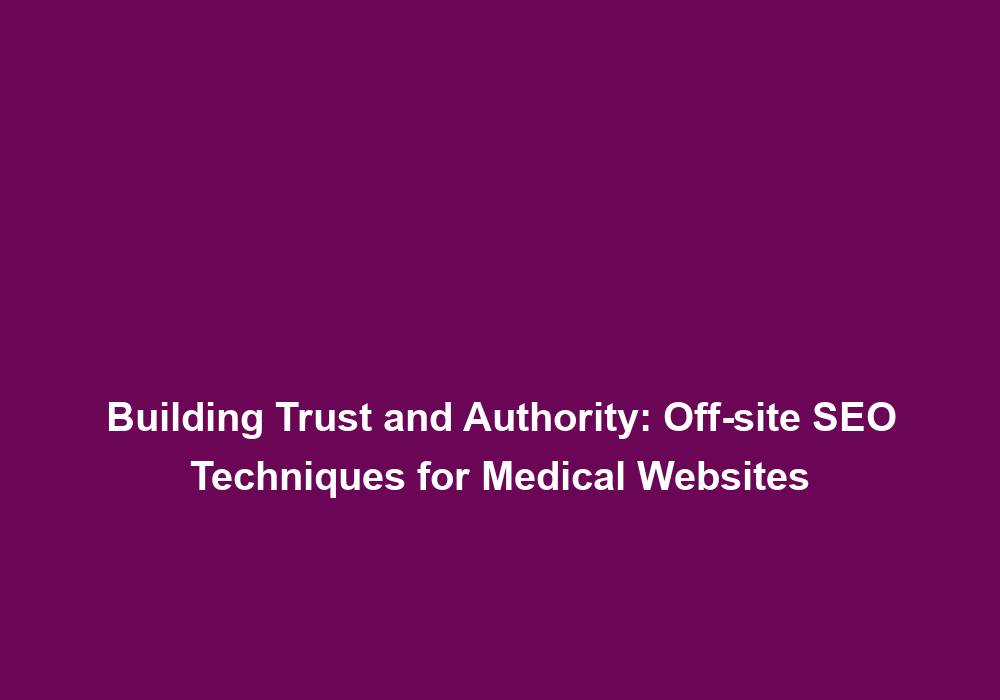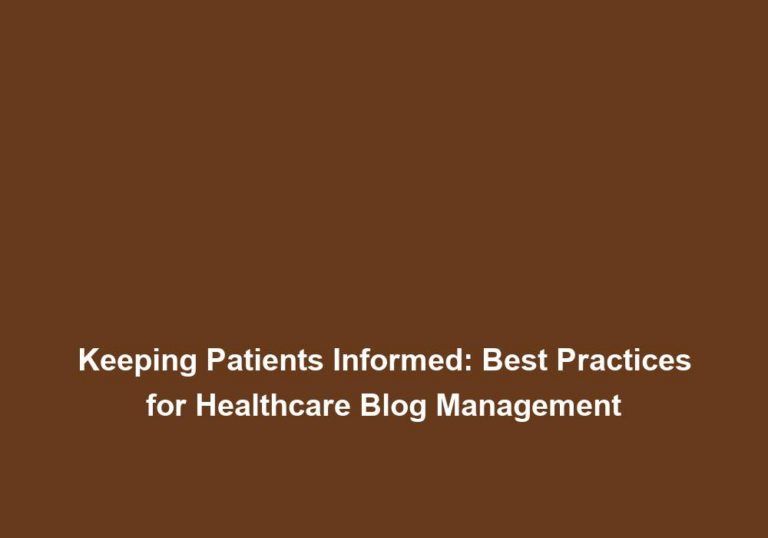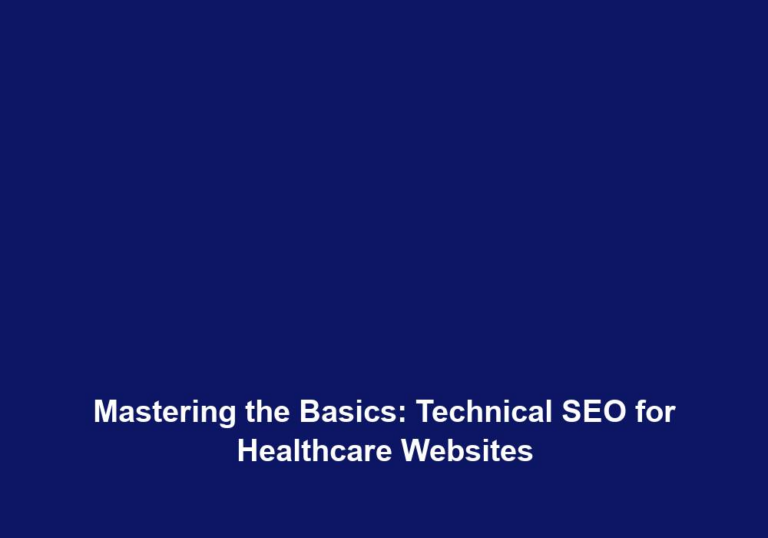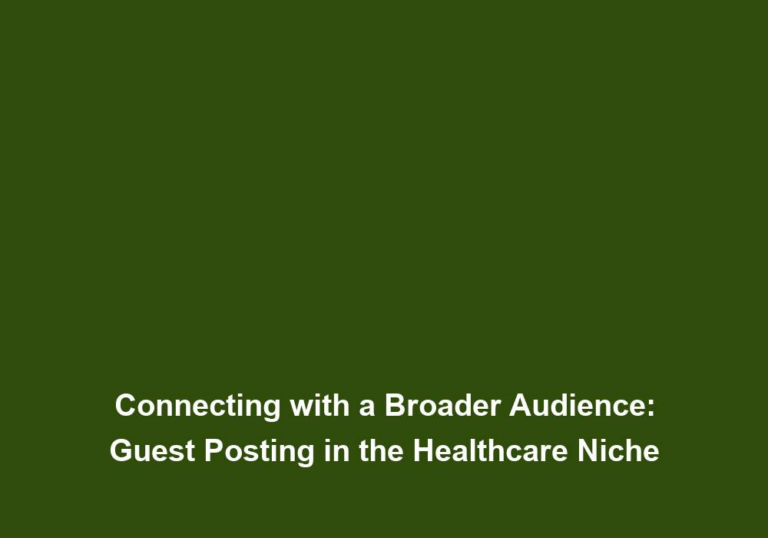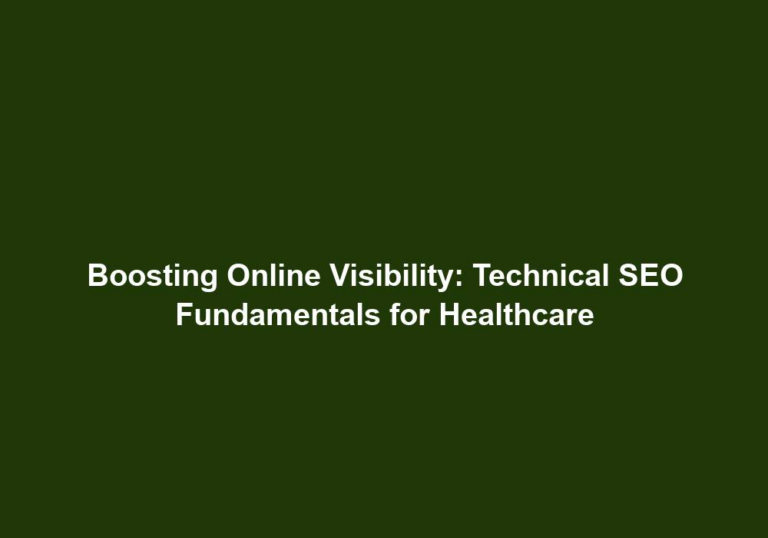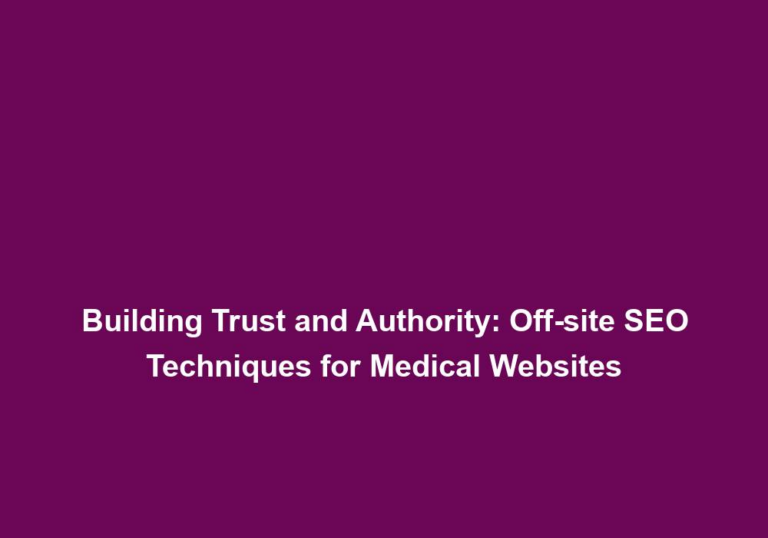Building Trust and Authority: Off-site SEO Techniques for Medical Websites
Off-site SEO techniques play a crucial role in enhancing the visibility and credibility of medical websites. In the highly competitive healthcare industry, it is vital to establish trust and authority to attract patients and rank higher on search engine result pages (SERPs). In this article, we will delve into effective off-site SEO strategies that can help medical websites build trust and authority, ultimately driving more organic traffic and patient conversions.
1. Develop a Strong Link Building Strategy
Link building is a fundamental aspect of off-site SEO that can significantly impact a medical website’s trust and authority. Effective link building involves acquiring high-quality backlinks from reputable and relevant sources. Here are some strategies to consider:
-
Guest Blogging: Guest blogging is an excellent way to establish your expertise and build backlinks. Reach out to authoritative medical websites and offer to write guest blog posts. Ensure that your content is informative, well-researched, and provides value to their audience. In return, you can include a backlink to your website within the author bio or content itself.
-
Local Citations and Directories: Registering your medical practice on trusted local directories and citation websites can improve your online visibility and credibility. Ensure that your business information is accurate and consistent across all platforms. This not only helps potential patients find you but also helps search engines recognize your website as a credible source.
-
Influencer Outreach: Collaborating with influential healthcare professionals or medical influencers who have a strong online presence can significantly boost your website’s authority. By partnering with them to create valuable content or hosting webinars, you can increase your website’s exposure and gain authoritative backlinks.
2. Leverage Social Media Platforms
In today’s digital age, social media platforms have become essential tools for building trust and authority. Here’s how medical websites can utilize social media effectively:
-
Engage and Educate: Regularly posting informative and engaging content on platforms such as Facebook, Twitter, and LinkedIn can help you build a loyal following. Share insightful articles, patient success stories, and updates about your medical practice. Encourage audience interaction by responding to comments and questions promptly.
-
Influencer Partnerships: Collaborating with healthcare influencers on social media can amplify your reach and credibility. Engaging in joint live sessions, interviews, or guest posts can help your website gain exposure to a wider audience. Additionally, influencers can endorse your medical practice, further establishing your trust and authority.
-
Utilize Social Proof: Sharing positive patient testimonials, reviews, and ratings on your social media platforms can enhance your website’s trustworthiness. Potential patients often rely on social proof to make informed decisions. Highlighting positive experiences can influence their perception of your medical practice and increase patient conversions.
3. Foster Relationships with Medical Associations and Organizations
Establishing connections with medical associations and organizations can significantly boost your medical website’s trust and authority. Consider the following strategies:
-
Sponsorship and Event Participation: Participating in medical conferences, seminars, or events sponsored by reputable organizations provides a great networking opportunity. It enables you to connect with industry leaders and build valuable relationships that can result in backlinks and collaborations. By being associated with respected organizations, your website gains credibility and authority.
-
Contribute to Medical Journals and Publications: Submitting well-researched articles or studies to renowned medical journals or publications can enhance your credibility and authority. When your work gets published, it not only showcases your expertise but also provides an opportunity for high-quality backlinks. This can drive organic traffic to your website and establish trust among potential patients.
4. Monitor Online Reputation and Reviews
Maintaining a positive online reputation is crucial for medical websites. Patients often rely on reviews and ratings to evaluate the credibility of healthcare providers. Consider these tactics:
-
Online Review Management: Encourage satisfied patients to leave reviews on trusted review platforms such as Google My Business, Yelp, or Healthgrades. Respond to both positive and negative reviews professionally and promptly, showcasing your commitment to patient satisfaction. Addressing negative feedback can demonstrate your willingness to improve and regain trust.
-
Monitor and Address Feedback: Regularly monitor social media platforms and online forums to address any concerns or questions raised by patients. By actively engaging with your audience, you can mitigate potential reputation issues and build trust. Promptly responding to inquiries and providing helpful information can enhance your website’s authority and credibility.
5. Optimize for Local SEO
For medical websites targeting local patients, optimizing for local SEO is essential. Implement the following techniques:
-
Google My Business: Claim and optimize your Google My Business listing by providing accurate contact information, business hours, and services offered. Encourage patients to leave reviews and respond to any inquiries promptly. This will enhance your online visibility in local search results and establish trust among potential patients.
-
Localized Content: Create localized content by incorporating relevant keywords and phrases specific to your target location. This helps search engines understand the geographical relevance of your website and improves its visibility in local search results. By tailoring your content to local audiences, you can attract more local patients and establish trust within the community.
In conclusion, off-site SEO techniques are essential for medical websites to establish trust, authority, and visibility in a highly competitive online landscape. By incorporating these strategies, you can enhance your website’s credibility, attract more organic traffic, and ultimately increase patient conversions. Remember to continuously monitor and adapt your off-site SEO efforts to stay ahead of the competition and maintain a strong online presence.

